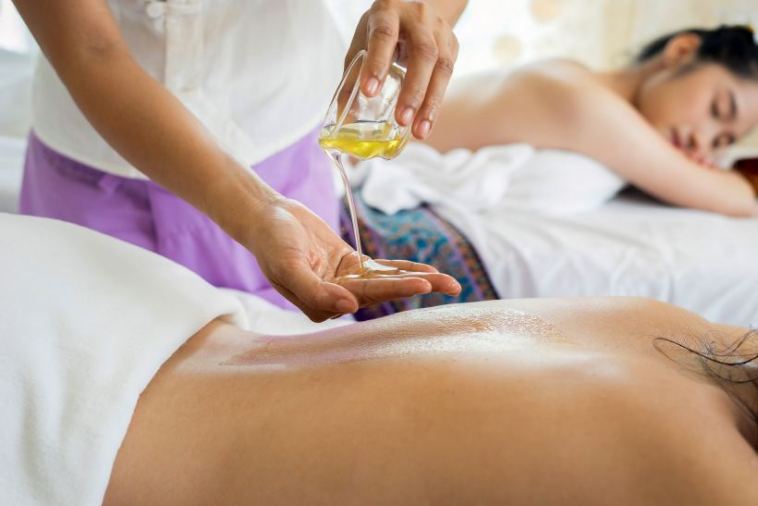- Like
- SHARE
- Digg
- Del
- Tumblr
- VKontakte
- Flattr
- Buffer
- Love This
- Save
- Odnoklassniki
- Meneame
- Blogger
- Amazon
- Yahoo Mail
- Gmail
- AOL
- Newsvine
- HackerNews
- Evernote
- MySpace
- Mail.ru
- Viadeo
- Line
- Comments
- Yummly
- SMS
- Viber
- Telegram
- JOIN
- Skype
- Facebook Messenger
- Kakao
- LiveJournal
- Yammer
- Edgar
- Fintel
- Mix
- Instapaper
- Copy Link
Introduction
Everyone, no matter what age, should perform some form of daily exercise. It could be something as easy as walking your dog around the block to an extreme HIIT workout at your local gym. Whatever you prefer, you should make it a priority in your life.
Exercise offers a tremendous amount of health benefits. You can reduce your risk of heart disease, diabetes, stroke, and cancer by up to 50% and your chance of premature death by 30% by staying active.
As much as exercise is vital for staying healthy, you also need to recover after your workouts. This time allows your muscles to repair, reduces lactic acid build-up, and gives you enough energy to perform again.
Looking for some effective ways to recover after you’re done working out? Here are some of the best ways to recover after any type of workout.
Get a Massage
“After a workout, you could feel pent up tension, stress, muscle aches, and pains,” state the professionals at Le Penthouse. A massage can help relieve sore muscles and put you in a place of relaxation.
After the massage, your muscles will be loose again, and your blood will increase in circulation. It’ll also increase your flexibility and release built-up tension. The massage therapist will work out lactic acid, which will make you feel less tired.
A massage every once in a while can also prevent injury in your next workout because you won’t be stiff and sore.
Can’t afford regular massage? Don’t sweat. Purchase a foam roller to massage yourself. This is called self-myofascial release and it can be an effective way to help speed muscle recovery. Learn more here.
Drink Plenty of Water
Even if you just do light workouts, you’ll likely sweat. When this happens, your fluid levels drop, causing dehydration. You’ll need to replenish all that’s lost while exercising.
Being hydrated has many health benefits, including the speed of recovery. Water helps flush out the toxins in your body and brings nutrients to your cells that are trying to repair. Hydration helps with body temperature regulations, which is essential when practicing high-intensity workouts.
Eat the Right Foods
After you’re done working out, your body needs proper nutrition, and there are plenty of foods to help with muscle recovery. For example, potassium can help prevent cramps.
However, proteins (amino acids) are the building blocks of muscle and one of the most important things you can consume to help speed up the healing time of your muscles.
As far as protein goes, I’m personally a big fan of natural proteins such as lean protein from salmon or a quality cut of lean chicken. But feel free to consume a quality protein shake for an quickly digestible and convenient source. Eggs are also a great and cheap source of protein.
Get Adequate Sleep
When you’re fully rested, you feel more energized, perform better, and recover faster. At night, especially during REM sleep, your body is hard at work healing. You naturally produce growth hormones, which repair tissues and muscles.
To recover, you need to get at least 7 to 9 hours of sleep at night. Sufficient rest will make your next workout easier because you’ll have the energy to do it.
Getting proper sleep also doesn’t just heal your physical body. It has been proven that getting adequate sleep can improve your mental and emotional state as well.
If you’re feeling great physically, mentally and emotionally, you’ll be more focused and inclined to stick to your healthy habits, which include regular exercise.
Try an Ice Bath or Cold Shower
You don’t see professional athletes utilizing ice baths for nothing. Icing your muscles after a strenuous fitness session can do wonders for muscle recovery.
That being said, it isn’t exactly a practical practice for the everyday exerciser. So what you can do is take a super cold shower for twenty minutes. It’s not as effective as an ice bath session, but it will make you feel better and can aid muscle recovery.
The Bottom Line
Exercise is a critical part of living a long and healthy life. Staying active keeps your heart strong and your immune system running at peak performance. However, between workouts, you need to take the time to recover.
While resting, you can get a massage, should drink plenty of water, and be sure to get enough sleep at night. Also, don’t forget your protein. And perhaps give a cold shower a try.
Once you start utilizing these tips on a regular basis, you’ll feel better and see an improvement in your physical performance during your next workout.
About Theresa Duncan
Originally from Detroit, MI, Theresa has been offering health and fitness advice for the last 30 years while working as an engineer. She decided to turn her passion into a profession, and finds nothing more satisfying than helping others reach their health and fitness goals.

